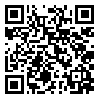Volume 7 -
MEJDS (2017) 7: 58 |
Back to browse issues page
Download citation:
BibTeX | RIS | EndNote | Medlars | ProCite | Reference Manager | RefWorks
Send citation to:



BibTeX | RIS | EndNote | Medlars | ProCite | Reference Manager | RefWorks
Send citation to:
Ayadi N, Rasouli M, Nazary A M. Investigate mediating effect of self-esteem in the relationship between insecure attachment styles with marital burnout opiate addicts. MEJDS 2017; 7 :58-58
URL: http://jdisabilstud.org/article-1-700-en.html
URL: http://jdisabilstud.org/article-1-700-en.html
1- Khwarizmi University
Abstract: (6086 Views)
Abstract
Objective: Substance use and its unpleasant consequences are a major social concern. Opiate addiction influenced by variety of factors. Simultaneously, it affects various aspects of life due to its multidimensional nature. The aim of this study was to investigate mediating effect of self-esteem in the relationship between insecure attachment styles with marital burnout among opiate addicts.
Methods: This is a descriptive correlation study. The population of the study included all opiate addicts admitted to addiction treatment centers in Tehran- Iran. Cluster sampling used to recruit 215 participants. In so doing, eight randomly chosen districts of Tehran with top four-drug rehabilitation center selected. In the next step, three addiction treatment centers from the each district randomly selected, from which all the participants were recruited. The research instruments were Self- Esteem Questionnaire (SEQ) developed by Rosenberg, Adult Attachment style Inventory (AAAI) developed by Collins & Read and Married Burnout Questionnaire (MBQ) developed by Pines. Pearson correlation and multiple regressions used to analyze the data.
Results: The results of correlation matrix between insecure attachment style, self-esteem and marital burnout showed that there is a significant relationship between insecure attachment style and self-esteem with marital burnout of opiate addicts. So that there is a positive relationship between insecure attachment styles with marital burnout and there is a negative and significant relationship between self-esteem with addicts’ marital burnout. Also, the result of correlation matrix showed that insecure attachment style has the negative correlation with self-esteem. In addition (P=0.003, β=0.238). Also, Insecure attachment style indirectly affects the self-esteem, causing changes in marital burnout (P>0.001, β=0.239). In other words, insecure attachment style directly increases the marital burnout. At the same time, it also decreases their self-esteem, which in turn leads to an increase in marital burnout.
Conclusion: Research findings showed that self-esteem plays a mediating role in the relationship between insecure attachment style and marital burnout. So, due to the important role of self-esteem in the personal and marital life, it is necessary to pay attention to the role of psychological variables in social pathology prevention programs. Also, regarding the role of the child's intimate relationships with parents in childhood on individual’s future social and marital communications, providing education to families about favorable parenting style and their impact on future children's life can play an important role in the quality of next-child interpersonal relationships in various dimensions of their life such as social and marital affairs.
Objective: Substance use and its unpleasant consequences are a major social concern. Opiate addiction influenced by variety of factors. Simultaneously, it affects various aspects of life due to its multidimensional nature. The aim of this study was to investigate mediating effect of self-esteem in the relationship between insecure attachment styles with marital burnout among opiate addicts.
Methods: This is a descriptive correlation study. The population of the study included all opiate addicts admitted to addiction treatment centers in Tehran- Iran. Cluster sampling used to recruit 215 participants. In so doing, eight randomly chosen districts of Tehran with top four-drug rehabilitation center selected. In the next step, three addiction treatment centers from the each district randomly selected, from which all the participants were recruited. The research instruments were Self- Esteem Questionnaire (SEQ) developed by Rosenberg, Adult Attachment style Inventory (AAAI) developed by Collins & Read and Married Burnout Questionnaire (MBQ) developed by Pines. Pearson correlation and multiple regressions used to analyze the data.
Results: The results of correlation matrix between insecure attachment style, self-esteem and marital burnout showed that there is a significant relationship between insecure attachment style and self-esteem with marital burnout of opiate addicts. So that there is a positive relationship between insecure attachment styles with marital burnout and there is a negative and significant relationship between self-esteem with addicts’ marital burnout. Also, the result of correlation matrix showed that insecure attachment style has the negative correlation with self-esteem. In addition (P=0.003, β=0.238). Also, Insecure attachment style indirectly affects the self-esteem, causing changes in marital burnout (P>0.001, β=0.239). In other words, insecure attachment style directly increases the marital burnout. At the same time, it also decreases their self-esteem, which in turn leads to an increase in marital burnout.
Conclusion: Research findings showed that self-esteem plays a mediating role in the relationship between insecure attachment style and marital burnout. So, due to the important role of self-esteem in the personal and marital life, it is necessary to pay attention to the role of psychological variables in social pathology prevention programs. Also, regarding the role of the child's intimate relationships with parents in childhood on individual’s future social and marital communications, providing education to families about favorable parenting style and their impact on future children's life can play an important role in the quality of next-child interpersonal relationships in various dimensions of their life such as social and marital affairs.
Type of Study: Original Research Article |
Subject:
Counseling
Send email to the article author
| Rights and permissions | |
 |
This work is licensed under a Creative Commons Attribution-NonCommercial 4.0 International License. |




